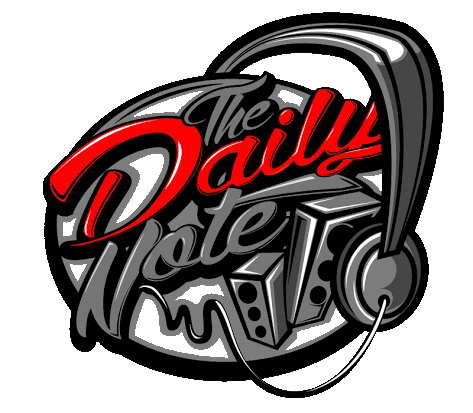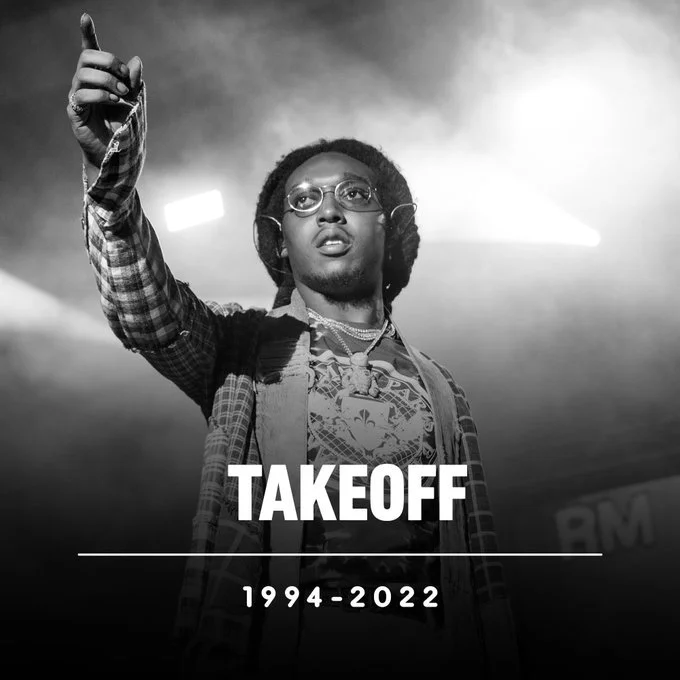Culture & Takeoff (Article)
First and most importantly, rest in peace Takeoff.
That still hurts to type. Hurts even more to think about. There are so many thoughts that just come from that one statement. So many thoughts that I couldn’t even think of what to say about it beyond may he rest in peace. There are so many things worthy of conversation that come from reflecting upon the lives and careers of Atlanta’s treacherous three. I’m 28. That means I got to live out the majority of my so-called “glory years” under the Migos’ rule whether I liked it or not. I’ll be honest, they had to grow on me. For full transparency, let me paint the picture. When “Versace” first dropped, I didn’t care. I never let it spin past the Drake verse. “Fight Night” was a little bit more my speed thanks in large part to it’s West-Coast flavored instrumental, but also thanks to Takeoff’s gravely opening bars. “RIP to Nate Dogg, I had to regulate”. But I’m still not sold on the group. The new trap wave around this time just didn’t grab me in general. But Drake & so many others are now using that same flow they blew up on “Versace” so I gotta respect it.
Actually that’s a bit of an understatement so let’s pause for a minute. THE TRIPLET WAS THE CULTURAL HEARTBEAT OF THE 2010’s. It became the backbone of modern music, the most recycled songmaking tool since autotune a few years prior. A major difference was the gateway to entry. There was none. While artists wanting to use autotune at first fled to T-Pain for support before the industry at large turned its back on him, people weren’t waiting on a Quavo feature to incorporate that Migos style. By the second half of the 2010’s (coincidentally the commercial peak of rap music), the “Migos flow” was everywhere. Future’s legendary 2015 mixtape run made avid use of it. Drake was still using it. Every emerging new artist from Lil Uzi Vert to Travis Scott was using it. ARIANA GRANDE WAS USING IT.
In mainstream music, it was a simple go-to rhythm to make a casual listener connect instinctively to the familiarity. But in Black culture, it felt like a deep almost tribal connection to the music. 90% of kids freestyling would automatically go right to it just to get the crowd in tune with theme, immediately ad libbing where the expected pauses were… JUST LIKE THE MIGOS. Needless to say, at this point I was a fan. The flow wasn’t the exact same every time, but just familiar enough to immediately pull you in like a well known 80’s sample would in the 90’s. The main difference being this familiarity connected pretty much every artist at the time. What many would call a lack of originality read to me as a symbol of unity, especially considering it was popularized by a group of literal family members. And to the late Takeoff’s credit, it has been revealed in the wake of his passing by both of his surviving Migos members that it was he who concocted the formula in the first place. Takeoff was the first rapper of the three, always keeping his mind on it. Quavo and Offset eventually followed suit. Takeoff really WASN’T left off “Bad & Boujee”. Plus he more than held his own weight on their classic album Culture. Despite my initial impressions of the trio, the Migos & their influence were solidified.
Takeoff was shot and killed at a dice game in Houston, TX on the early morning of November 1st, 2022. Of the big dogs, Gucci Mane was the first to dedicate new music to the fallen Migo. He appears to be in a very reflective space in his career as he recently denounced speaking on the dead in songs: a commonplace feature of rap music these days but also one that he himself helped popularize. I for one really appreciated that. He has taken ownership of his own cultural influence and tried to use it for good. One comment I heard a lot of following Takeoff’s death was how we fight for Black lives to matter to others yet we murder our own. Another that he shouldn’t have rapped about it, as if he had this coming somehow because of his artistry. But there is something to be said about the fact that our culture (currently more than ever) not only promotes but eats off of the deaths of our own.
There’s really only two types of rapper in the mainstream right now, both two distinct sides of the same coin. One is the PTSD rapper, telling tales of their pain. These artists usually rely on their cadences and melodies to make you feel the trauma they deal with and to justify their decisions. The other is the cold-hearted rapper usually making threats to the opps on wax all while symbolically dancing on the graves of murder victims. They may prioritize the sale of whatever product they choose to move as subject matter for a record, but please believe if you come between they’ll squeeze. When’s the last time you heard a rap song without a threat in it. I grew up on them. This isn’t new. Neither is the alarmingly high death count of Black people. What is new is how many of them are famous. It’s very hard to ignore hundreds of Black deaths when you’ve seen their names in lights. That is why it is so important to say the names of these innocent lives lost like George Floyd, Breonna Taylor, even Emmett Till. Because just like Kirshnik “Takeoff” Ball, they were human. They were somebody’s friend, somebody’s child, maybe even somebody’s parent. So was Tooka. So was Pookie.
I’m 28. This means I was outside during peak Migos season. That also means I’m the same age as Takeoff, who is tragically no longer with us. Two very distinct reasons this death hits me so hard. But being 28 also means I’m mature enough to actually see the bigger picture here. Am I just going to cut music with any mere mention of violence out of my listening? No. Am I going to claim these men and women who’ve made it out of poverty and can now use art to feed their families have some sort of obligation to not make certain kinds of art at the risk of them falling off, heading back to the trenches, and actually ACTING OUT the things they rap about just to make ends meet? Absolutely not. It’s a much more complex issue. I haven’t even touched on how normalized violence against Black men & women leads us back to white supremacy and the slave trade, but that’s because I don’t think we need to.
I do think we do need to do better though.
I do think we do need to be having these conversations.
I do think we do need to see a change.
I think we do need to have a healthier culture.



